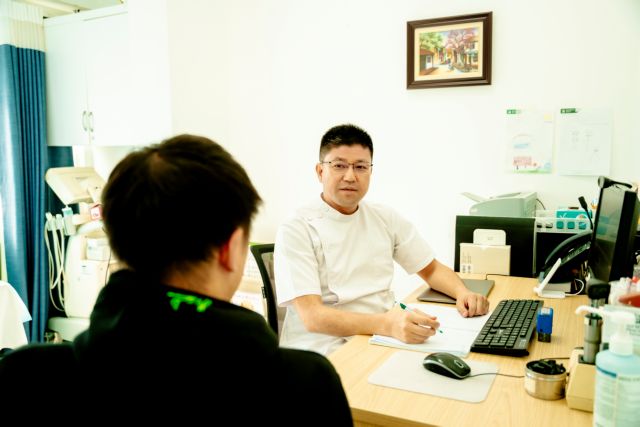 Life & Style
Life & Style

Dr Hiroshi Chiba*
Do you constantly feel exhausted even after a full night’s sleep? Do you become breathless after minimal effort, or crave an ice cube for no apparent reason? These overlooked symptoms could signal iron deficiency anaemia, a condition that affects millions worldwide.

|
| Constant fatigue and weakness are early signs of iron deficiency anemia Photo canva.com |
What is iron deficiency anaemia?
Iron deficiency anaemia (IDA), the most common type of anaemia globally, results from an insufficient amount of iron to produce healthy red blood cells. Iron is essential for haemoglobin, a protein that carries oxygen in red blood cells. Without sufficient iron, haemoglobin levels drop, oxygen transport is impaired and symptoms appear. The condition often develops gradually, beginning with 'latent iron deficiency' – low iron stores before haemoglobin drops. Many people with chronic fatigue do not realise they could benefit from iron supplementation even before full anaemia develops.
Do you recognise these symptoms?
Symptoms often begin mildly and worsen over time:
Persistent fatigue and low energy even with rest
Frequent headaches and dizziness
Pica: craving non-food items like ice or dirt
Restless Legs Syndrome (RLS)
Shortness of breath with activity
Rapid heart rate (tachycardia)
Pale skin
Other signs: sore tongue, brittle nails, hair loss, itchy skin, mouth ulcers and cold intolerance
Who is at risk of iron deficiency anaemia?
While anyone can develop IDA, certain groups are at higher risk due to blood loss, low iron intake or poor absorption:
Women of reproductive age: Heavy menstruation, often due to fibroids or polyps, is a major cause. A 2009 Vietnamese study reported a 5.4 per cent prevalence in this group.
Pregnant and postpartum women: Iron needs surge during pregnancy, requiring about 1,200 mg.
Those with gastrointestinal conditions or surgeries: Ulcers, IBD, coeliac disease and bariatric surgery can cause blood loss or poor absorption.
Vegetarians and vegans: Diets low in bioavailable iron raise risk.
Older adults: Often affected due to chronic conditions or reduced absorption.
Why you shouldn’t ignore it
If untreated, IDA can cause serious complications. In pregnancy, it increases risks of poor outcomes for mother and baby. In older adults, it may impair cognition and daily functioning. Severe cases can lead to heart enlargement or failure. A sudden onset in adults may indicate gastrointestinal cancer – prompt evaluation is critical.
How iron deficiency anaemia is diagnosed
If you suspect IDA, consult your doctor. Diagnosis involves blood tests like a complete blood count and serum ferritin, which is a key indicator of your body’s iron stores and can reveal a deficiency even before anaemia develops.

|
| Dr. Hiroshi Chiba discussing test results with a patient - early consultation is key in diagnosing iron deficiency anemia. Photo courtesy of Family Medical Practice |
Treatment for iron deficiency anaemia
Treatment starts with addressing the underlying cause. Oral iron supplements are typically first-line and continued for months to restore iron. Side effects such as nausea or constipation are common but can be managed with dosage changes or alternate formulations.
Prevention through diet
Diet helps too. Eat more iron-rich foods such as meat, beans, leafy greens and fortified cereals. Vitamin C enhances absorption, while tea, coffee and dairy products inhibit it. While diet alone rarely reverses a deficiency, it helps maintain iron levels after treatment.
Your health matters
Do not ignore persistent fatigue or other signs. Early diagnosis and treatment of iron deficiency anaemia can greatly improve your quality of life and prevent complications.
Family Medical Practice

|
| Dr Hiroshi Chiba. Photo courtesy of Family Medical Practice |
* Dr Chiba Hiroshi is a Japanese family doctor with 20 years of experience working in Japan and Cambodia, specialising in primary care, travel medicine and urgent care. He graduated from Tohoku University School of Medicine in 1998 and received his PhD in Geriatrics in 2004. He provides consultation on a wide range of health problems for all age groups. Other areas of speciality and interest include infectious disease, infection control and medical education.
FMP Healthcare Group operates medical centres in major cities including HCM City, Hà Nội and Đà Nẵng, offering consultations with international doctors, check-up centres and emergency ambulance services.
Visit FMP Hanoi 24/7 at 298I Kim Mã Street, Ngọc Hà Ward, Hà Nội.
To book an appointment, please call (024) 3843 0784, or contact via WhatsApp, Viber or Zalo on +84 944 43 1919, or email hanoi@vietnammedicalpractice.com.




